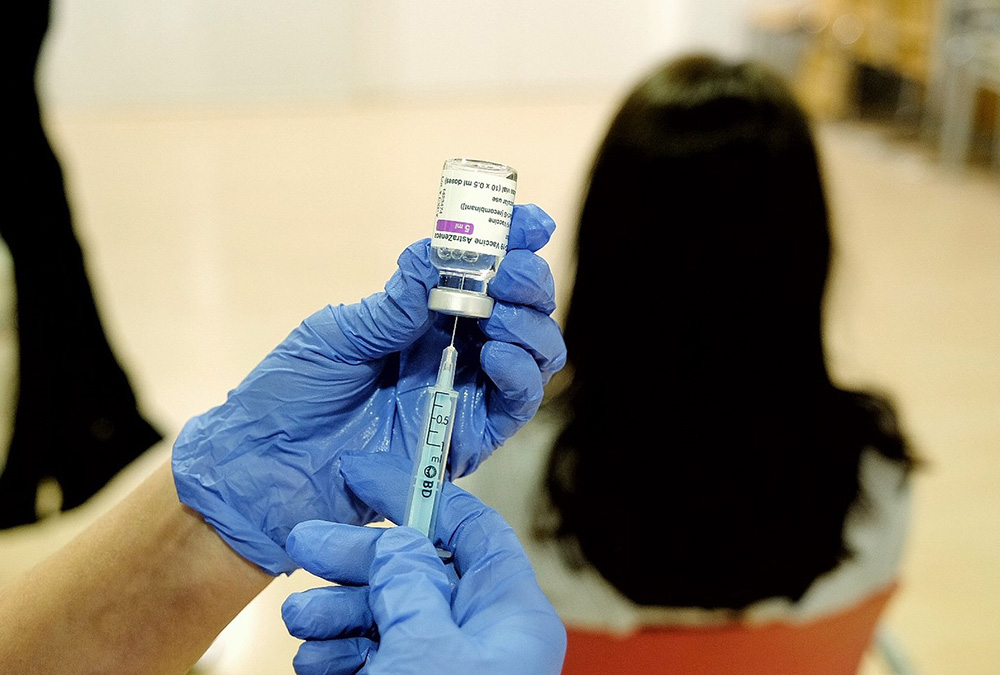As the province rolls out its fall 2023 duo COVID-influenza vaccination campaign, most British Columbians are due to shore up their viral defences.
The National Advisory Committee on Immunization recommends everyone get the latest fall 2023 COVID vaccine, which offers better protection against current strains, compared to previous vaccines.
The B.C. Ministry of Health follows this advice.
How many vaccines a person has been offered or should have gotten to date varies depending on a person’s age and health.
NACI recommended everyone get the primary series (which could range from two to four doses) and a fall 2022 booster. This spring, NACI also recommended people who were at high risk of severe disease get another booster.
Health Canada lists the requirements for the primary vaccination series on its website, which is broken down by age, immunocompromised status and vaccine type.
In the spring the B.C. government sent out invitations, inviting people older than 80, seniors in long-term care homes, Indigenous people older than 70 and anyone 18 and older who was moderately to severely immunocompromised to book their COVID vaccine appointment. People 60 and older and Indigenous people 50 and older who had not yet had COVID were also eligible.
Once higher-risk folks had been invited, the Health Ministry says it also sent out invitations for people to book their COVID vaccine if it had been six months since their last COVID vaccine.
In an email the Health Ministry told The Tyee it sent out 914,000 invitations between March 29, 2023 and June 18, 2023 “once it was six months since their last COVID-19 vaccine.” From April to October 2023 there were more than 500,000 doses of the spring booster administered, which is equal to just under 10 per cent of the province.
A previous version of this article incorrectly said NACI recommended getting a vaccine every six months. NACI has issued recommendations about vaccines every six months and has consistently recommended vulnerable populations get vaccinated if it has been at least six months since their last known COVID vaccine or infection. This is different than recommending a vaccine every six months, and the article has been updated to correct the mistake.
British Columbians who live in northern B.C. may not be able to access their shots before December.
Vaccine-only strategy not working
These issues with vaccine access form part of the reason why B.C. shouldn’t be relying on just vaccines to protect people from the pandemic, says Lyne Filiatrault, a retired emergency room physician and member of Protect Our Province BC.
PoP BC is a grassroots group of health-care workers, health policy specialists and advocates who fall into the COVID-cautious group. They advocate for a Swiss cheese defence strategy, in which people use a combination of masking to protect against aerosols, improved indoor ventilation, widespread testing, vaccines and a more proactive approach to COVID.
“In B.C. we’re using a vaccine-only strategy, but the government doesn’t seem capable of rolling out a vaccine without any glitches,” Filiatrault said. While she was booking her own fall 2023 vaccine, she said, she spoke with multiple pharmacists who told her they were struggling with supply issues.
Filiatrault also criticized the province’s approach to the Get Vaccinated program, which requires that British Columbians register themselves to get updates about vaccination availability and book appointments. Requiring self-registration, she said, leads to low uptake for youth.
The protection offered by vaccines also wanes over time, which Filiatrault said is why the BCCDC’s latest report noted COVID “deaths remain elevated among the 80-plus age group since [the week of Sept. 24-30].”
Deaths are a “lagging indicator” that shows COVID is already widespread in the community, Filiatrault said.
When to book your shot
Before you call 1-833-838-2323 or use the province’s online platform to book a COVID vaccine, think about the last time you were sick. If you recently had COVID, it’s best to wait a couple of months before getting the latest vaccine.
“The chance of getting COVID-19 again is low in the months after infection,” the BCCDC says on its website, adding “you can wait up to three to six months for your next vaccine dose. The immune response is better when there is more time between infection and vaccination.”
If you are currently sick with COVID, HealthLink BC recommends getting better before getting the vaccine.
If you got a text or emailed notification from the provincial Get Vaccinated program last year, you should get another one this year, inviting you when there’s availability to get vaccinated.
Vaccines are being distributed first to people older than 65, residents of long-term care facilities, people with underlying health conditions, pregnant people, health-care workers and first responders. It’s also important for anyone who is Indigenous to get vaccinated because they are at higher risk of serious illness because of health inequalities resulting from colonialism, the province notes.
But people can also jump ahead and call 1-833-838-2323 to request an appointment any time.
Get Vaccinated is encouraging people to get their flu and COVID vaccines during the same appointment to save them from taking two trips.
The COVID vaccine is created annually “to match as close as possible the strain of virus or viruses in circulation,” the Health Ministry told The Tyee. This is similar to how the annual flu vaccine is created, but the ministry said “it’s too early to say whether COVID-19 vaccines will become an annual vaccine.”
The Moderna and Pfizer mRNA vaccines available during the fall 2023 rollout are designed to protect people from the most common XBB.1.5 variants, also known as the “Kraken” variant. According to data from the World Health Organization, this is not the leading variant in Canada anymore, but officials say the vaccine still offers the best protection against current strains. These vaccines help reduce the severity of an infection, which therefore reduces a person’s risk of hospitalization or death and reduces the risk of long COVID.
The province says mRNA vaccines offer the best protection out of all available vaccines.
There is a non-mRNA vaccine available in B.C. for people 12 years and older, known as Novavax. However, the updated Novavax vaccine is still being reviewed by Health Canada, according to the BCCDC’s website. The updated vaccine is predicted to be approved later this year.
Filiatrault says B.C. needs to do more testing and reporting of COVID cases. A virus forecasting database from COVID-19 Resources Canada predicts that from Oct. 21 to Nov. 3, 2023, around one in every 14 British Columbians will be infected with COVID.
With more testing and reporting the province could create a warning system similar to warnings about air quality produced during wildfire season, Filiatrault says. Except instead of suggesting that British Columbians stay indoors and avoid exercise, people could opt to wear a mask in crowded spaces and limit, where possible, time spent indoors around others.
* Story updated on Nov. 7 to correct that NACI doesn’t recommend getting a vaccine every six months, but that it has consistently recommended vulnerable populations get vaccinated if it has been at least six months since their last known COVID vaccine or infection. ![]()
Read more: Health, Coronavirus, BC Politics
















Tyee Commenting Guidelines
Comments that violate guidelines risk being deleted, and violations may result in a temporary or permanent user ban. Maintain the spirit of good conversation to stay in the discussion and be patient with moderators. Comments are reviewed regularly but not in real time.
Do:
Do not: